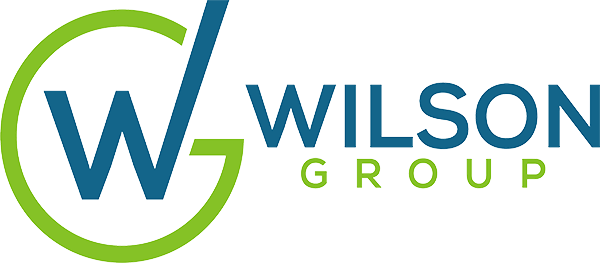by Tom Wilson and Larry Reissman
There are those who believe that once the Covid-19 virus is contained, life will return to normal. But, after September 11, 2001, life did not return to what then was considered normal. What will life be like after this pandemic? This article will address key questions of philosophy and practices related to compensation and benefit programs in a post-pandemic world. The impact may range from how we regard which jobs are essential, to how we pay people who help build a strong workplace community. There are more questions than answers, but the questions are important.
Do you remember what life was like before September 11, 2001? How did you board an airplane? Did you need to empty your pockets and go through a metal detector when you entered a baseball stadium or government building? Life has changed a lot since then. Once we get the Covid-19 virus pandemic under control, what will be changing in our daily lives? What about our workplaces and how we interact with others on our work team?
In a pulse survey by Aon in March 2020, “What Employees Want in these Uncertain Times”, there were three primary concerns of most employees:
- Job Security – will they still be employed, or will they be able to get another job?
- Income Security — will their income enable them to meet their normal living expenses and hopes for retirement?
- Health Security — what happens if they or a member of their family get sick from the virus or need direct personal care? Will they lose their job or take a pay cut?
These concerns are basic to everyone, especially to those who have faced the most severe work-life impact of the pandemic. People want a sense of security and income protection. They want to be able to care for their family if needed and know that they will continue to have a job, if not with their current employer, at least a job where their talents are appreciated. They are examining what their employer has been doing during this pandemic. These actions are shaping the degree of trust people have in their employers.
In addition, many companies have made substantial reduction in executive compensation in order to address the need to reduce costs, provide income stability to their employees and show social responsibility in these times of serious hardship. These actions have tried to demonstrate the “we’re in this together” spirit, and these actions have made the firms more “associate-centric.” Will this continue once the pressure of the pandemic eases?
There is also a theory in human motivation that a set of behaviors done for 30, 60 or perhaps 90 days will become habits and are then the “next normal.” In an era when 30+ million people have lost their jobs and millions more have seen serious reductions in their pay, people may reconsider who they work for, how they are treated, and wonder to what degree does the firm care about them as individuals. While not every organization or individual has faced the same degree of crisis, we do hear an important mantra – “We are all in this together.” We have celebrated the work and devotion of the frontline workers, whether they are in healthcare, grocery stores, public transportation, mail and delivery services, farmers and food processors, and many other industries that provide us with the infrastructure needed to live a good life. But they are also the ones that are frequently paid the least, often below a living wage, and because they live in crowded homes and densely populated communities, are the ones that are most negatively impacted by the outbreak of this virus. How will America respond? What changes will employers make? How will the world be different when COVID19 starts to recede, and the “next normal” stage begins?
Compensation and benefit programs are part of the infrastructure system at most organizations. While many sophisticated Human Resource leaders and thoughtful executives regard them as strategic, in this time of fear and survival, compensation programs take on additional importance. They provide the income and the security people need to survive. In many ways, they define the trust and kind of relationship people have with their employer. As we enter the “next normal”, these programs may come under intense scrutiny.
These programs are structured around a basic set of principles:
- The value of your work defines the range of pay opportunities you have.
- The marketplace for people doing similar work defines the level of compensation you receive.
- The pay philosophy of the company and your performance and seniority determine the amount of pay you receive.
If we examine these three principles more deeply, we can begin to see the issues that will surface as we enter a post-pandemic world of work.
The Value of Your Work
Jobs that required the most basic skills, needing the least knowledge, complexity, responsibility or impact on the company typically receive the lowest level of pay. Companies didn’t need to pay more or much more than the minimum wage for getting lower-skilled individuals to do these tasks. Many firms thought that if someone wasn’t happy with the work, then there will be someone else waiting at the door to replace them, even during low unemployment. People were regarded as easily replaceable. When there was a shortage of low skilled workers, pay was elevated and companies sought technology and alternative work processes to replace the tasks once done by the individual. However, in this pandemic era, we have started referring to many of these people as “Essential Workers.” What does this mean? How do we reconcile paying “essential workers” a minimum or near minimum wage that is below the livable wage? Will automation further reduce the need for lower skilled work reducing demand and decreasing the market pressure to pay higher wages.? How might we change the perspective about the value of these jobs in the future? How might this impact how we see all “labor”? How do we change how we value the work people do? Do we let the competitive market define value or do we consider the importance of what people do to the purpose of the organization?
The Pay Marketplace
Many companies conduct special studies on what other companies pay for jobs that are similar to their own and frequently seek to pay the lowest possible “price” for the quality of talent they need. Sometimes that talent is rare, and the price is high; other times the price is determined by what organizations are willing to offer. Some would say this is capitalism at its finest – why should you pay above the minimum for any commodity or service as long as it meets your quality standards? In the future will organizations seek to pay the least “price” for what they need? Or, will they be guided by factors other than market? Will they continue to seek to acquire talent from the least cost areas with the focus on reducing costs to their minimum? Or, will community considerations offset purely financial considerations? Will people be willing to take the pay they are offered or stay with an organization? Or, will the decision of what to offer the individual and what the individual seeks from his or her employer become more complex? Now that this pandemic has shaken their confidence in the future and the stability of their income, will they seek employers who will provide better pay, better benefits, and greater security? Will employers “take advantage” of high unemployment post-pandemic and reduce pre-pandemic starting salaries while freezing current wages? How important will the security of a caring organization, personally attractive employee benefits and a “livable wage” or pay certainty be to whether an individual joins, remains or leaves an organization? We may be seeing a particularly challenging market where people want more, and employers are seeking to pay less because the market has been flooded with talented, unemployed individuals.
The Pay You Receive
Pay is often a secret transaction between the employee and employer. Only in recent years has the transparency of what people make, especially at the executive levels, becoming more known and a stigma on the “brand” of a company for those who pay excessively. What will be the philosophy of pay for the future workforce, as those returning to work or finding new work in the post-pandemic marketplace. Compensation may transform from one based on the individual or the market, to one that reflects a stronger sense of responsibility for one’s people, including more sharing of the profits and prosperities of the organization. Advances in pay may no longer be focused on executives and the well-off, and instead include more people in incentive plans that share the wealth and provide higher levels of income to the basic, core elements of the organization. In the future what will be the responsibility of executives, Board of Directors, unions and regulators for assuring people receive a “Livable Wage” and share in the profits of the company? To what extent will the spirit of a community that cares for each other be reflected in how organizations make pay decisions in the future? Will this spirit of “shared crisis” and community continue into and transform our work and decisions in a post-pandemic world?
If we return to a normal period that is similar to what existed before the pandemic, then many of the concerns of social responsibility and community caring will rapidly fade away. However, if the impact of this pandemic goes on for many months and perhaps years until we are truly safe, then perhaps there will be a paradigm shift in our country and the world. These decisions are ahead of us as employers, employees and customers. Will we continue to support others as we have done over the last several months, or return to win-lose marketplace, or something of a hybrid? It is unclear as we sit here today on what changes will actually take root, but one can be quite confident that fundamental changes will take place. As Bob Dylan said many decades ago, “These times, they are a changing.”
Perhaps there will be a greater sense of responsibility for others, or a shift in the income disparity that exists within organization, out of a compassion for those who helped us survive these crisis times. Perhaps there will be a newfound strength and commitment to finding an employer that is offering more than a transactional relationship, especially where pay is kept to a minimum. Perhaps consumers will do business with those organizations that offer more than the lowest price, and support what they are doing for their workforce, the environment and the customer. Perhaps Boards of Directors will see themselves as the custodian of social responsibility rather than guardians of shareholder wealth. The trend to move companies away from a myopic view of their mission to create shareholder wealth to one where stakeholder betterment will take hold.
We are experiencing a phenomenon that will take its place as significant in human history. The future has a series of choices and pathways that will provide new opportunities and discoveries. We will adapt to new habits, perspectives, assumptions, values and practices. A combination of these factors will guide us. We often do not know what has changed until we are well past the crisis. The decisions of our corporate, government and institutional leaders will redefine what the world looks like. It is up to you to accept or reshape these decisions and determine how they will impact the workplace.

